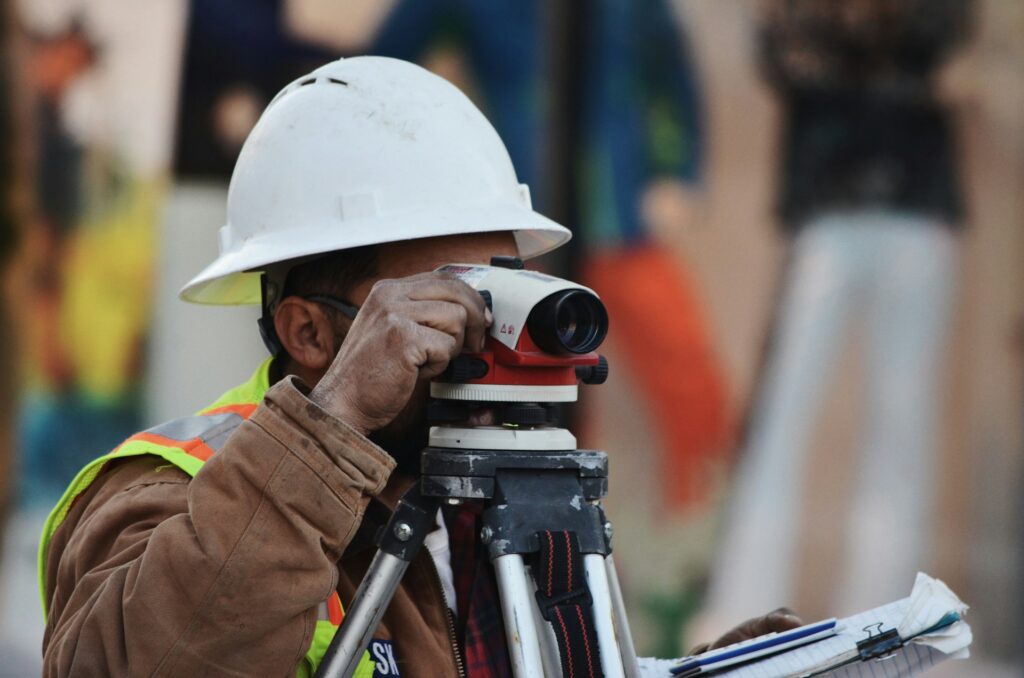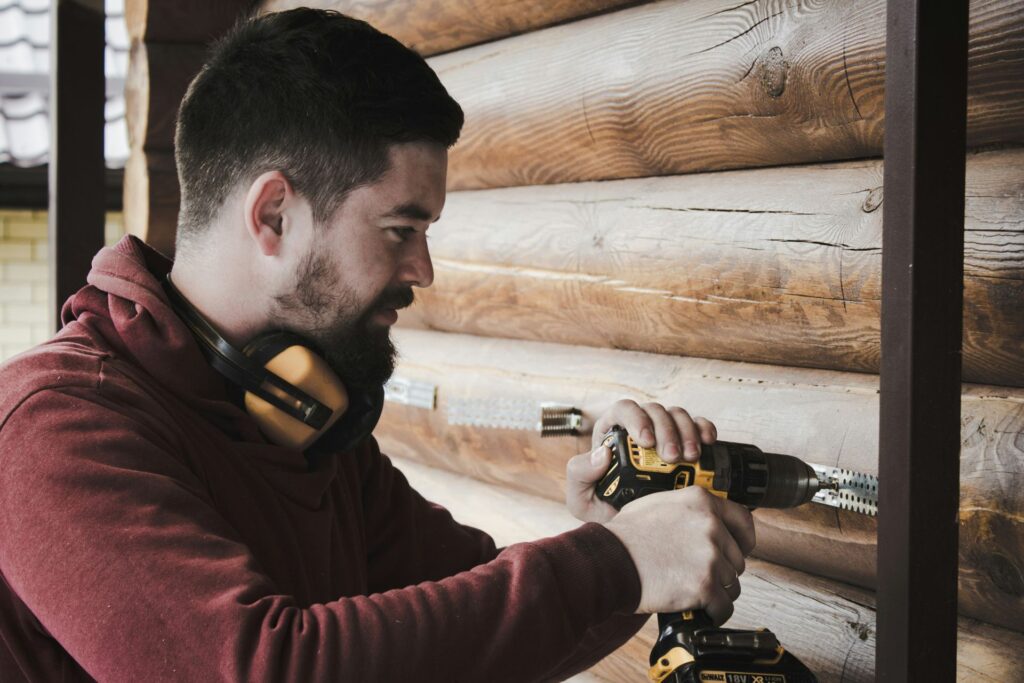
We are reader-supported. When you buy through links on our site, we may earn an affiliate commission.
Hands-on jobs are great for anyone willing to work with their hands and do some of the most necessary jobs to keep the economy running smoothly. If you’re searching for a career in the vocational field, then consider a job as a land surveyor. They play a vital role in property development, and they help build and define construction and environmental sites. Surveyors also require an extensive skill set to perform their jobs, so it takes a few years of training and education to become one. If this sounds like a job you’re interested in, then continue reading about how to become a surveyor.
What Is a Surveyor?
A surveyor makes measurements on land to determine the property’s boundaries. They offer data about the shape and contour of the land surface to construction workers, engineers, mapmakers and related fields. They also ensure that the boundaries are correct for the property.
Below is a list of the typical responsibilities of a surveyor:
- Measure various distances angles, including points below, on and above the Earth’s surface
- Complete research on land titles, survey records and land records
- Travel to locations and use points of reference to pinpoint the location of essential land features
- Carefully record the results of the survey and verify the accuracy
- Search for previous boundary evidence to locate the boundary lines
- Prepare various maps, reports and plots
- Testify in court regarding survey work for leases, deeds, water and land boundaries
- Present land surveying findings to government agencies and clients
Land surveyors also help mark and document locations of legal properties. When someone purchases or builds a building, surveyors mark the boundaries to help prevent disputes between land ownership.
In addition, surveyors need to become comfortable with various pieces of equipment depending on the type of survey they need to complete. Some of those items include Global Position System (GPS) technology and Geographic Information Systems (GIS). GPS systems use satellites to locate precise reference points, which helps the surveyor collect information about the terrain. GIS systems rely on spatial information like reports, charts and maps, used to advise construction.
Different Types of Surveyors
If you are interested in becoming a surveyor, you should know that there are different types of surveyors, including:
- Mine surveyors: Mine surveyors map and survey tunnels in underground and surface mines and determine the volume of mined material.
- Forensic surveyors: When there’s an accident, forensic surveyors survey and record the scene for landscape effects.
- Boundary or land surveyors: These are the most common surveyors as they help define legal property lines and locations of real estate or construction projects.
- Marine surveyors: Instead of surveying land, marine surveyors look at rivers, harbors, and other bodies of water to map out shorelines, water depth and the topography of the floor.
- Engineering or construction surveyors: These surveyors determine the locations of roads and buildings, and they help determine the proper depth for building foundations.
- Geodetic surveyors: Geodetic surveyors use high-accuracy technology to measure more significant portions of the Earth’s surface.
Most surveyors follow a similar path to become certified and licensed. With further experience, education and training, you could become a specialized surveyor.
Skills or Qualities Needed to Become a Surveyor
As with any job, a person should have certain qualities and skills that align with the job and allow them to be successful in the career. A critical skill for surveyors is communication. They need to be able to provide instructions to clients, team members and government officials. Additionally, they need to be able to follow instructions from construction managers and then explain the job process to lawyers, developers and financiers.
Furthermore, surveyors need to be detail-oriented, especially when dealing with legal documents. They should be able to work in rugged terrain, be comfortable outdoors, solve land disputes, manage their time and visualize potential buildings and landscape.
How to Become a Surveyor
Surveyors, no matter what type, need the proper education and training. It starts with getting a bachelor’s degree and ends with getting certified as a surveyor. Below are the steps necessary to become a surveyor.
1. Get Your Bachelor’s Degree
Surveyors usually need a bachelor’s degree because there is a lot of mathematics and technology involved in their careers. Some colleges provide specific degrees and programs for those students who want to become licensed surveyors.
You could also get a bachelor’s degree in a similar field like forestry or civil engineering. Depending on the state you live in, you may need to complete an ABET-accredited program. You’ll likely take courses in physics, geography, geology, calculus, and cartography.
2. Pass the Fundamentals of Surveying Exam
All graduates and soon-to-be graduates of an accredited program can take the Fundamentals of Surveying (FS) exam. This test is necessary if you want to start your career in surveying. Once you pass it, you’ll be a surveyor in training to gain on-the-job experience under the supervision of a licensed surveyor.
3. Start Training
As a surveyor in training, you’ll gain on-the-job experience. Many states require you to have about four years of training after obtaining your degree and passing the FS exam. You’ll learn how to do almost everything for your future career as you work alongside a licensed surveyor. Depending on the state you live in, you might be able to substitute more years of experience and training in place of education or a bachelor’s degree.
4. Gain Experience
You’ll need to gain experience over a few years or even up to ten years. The state you live in will determine how many years you need to be under supervision before becoming licensed. During this time, you might realize you want to specialize in a particular type of surveying, like marine, forensic, geodetic or boundary. This will help you tailor your work experience so you can become certified in a field you enjoy.
5. Earn Licenses and Certifications
After completing your training and experience period, you can earn any licenses and certifications you need to become a surveyor. Every state requires a surveyor to be licensed before certifying any legal documents for property lines or determining property markings on various projects.
To become a licensed surveyor, you’ll need to pass the Principles and Practice of Surveying (PS) exam. States tend to have continuing education for surveyors to maintain their licenses. Then, you can pursue a job with the company you trained under or with a new surveying company.
Salary and Job Outlook for Surveyors
According to the U.S. Bureau of Labor Statistics, the median annual salary for surveyors in May 2020 was $65,590. You’ll likely earn less than that during training and may be in the lower percentages of earners, which is around $37,000. As you gain experience and continue your education in surveying, you could reach three figures depending on where you live and your specialization.
Surveyors often work full time. When construction periods are high, you might have to work more hours than usual. Between 2020 and 2030, the job outlook is projected to grow by 2 percent. This is slower than average for other occupations, but remember that it takes quite a few years to become a licensed surveyor.
Surveyors are needed for boundary lines, construction projects and others, but the use of drones and other technology may limit employment growth. Similar occupations to surveyors include geographers, landscape architects, civil engineering technicians and mapping technicians.
Becoming a Surveyor
To become a surveyor, you must receive an undergraduate degree, pass the FS exam, gain training and experience and pass the PS exam to become licensed. Are you up for the task?










